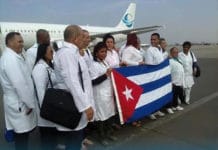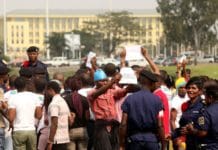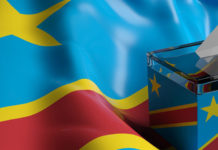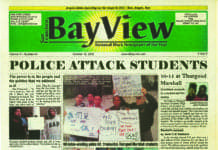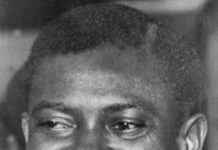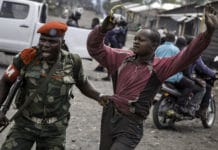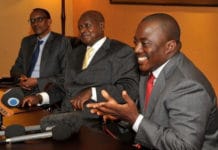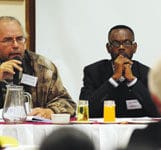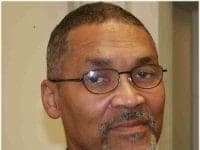by Saran Traore

Colonized by the French, Guinea was a part of the French West Africa Federation in 1895. In 1958, Guinea was led into independence by Ahmed Sekou Toure, becoming the first French-speaking colony to opt for unconditional independence after turning down a proposal from France to be a part of la Francaphonie.
The year 1958 also marked the breakup of the French Federation. Although Toure had very limited formal education, his charisma and passion for a free Guinea was widely shared by Guineans. As a result of Guinea opting for total independence from France, the French left Guinea barren, stripped of all resources and infrastructure and left the country to fend for itself.
Toure’s most famous quote that motivated all Guineans and Africans was, “We prefer dignity in poverty to affluence in slavery.” Guinea was not deterred in its mission, as it had encouragement from some of the great African revolutionaries. From Kwame Nkrumah of Ghana to Patrice Lumumba of the Congo, Sekou Toure of Guinea was one of the great contenders for African revolution, independence and unity. Toure however followed the path of dictatorship that most African leaders unfortunately follow.
By the late 1960s, Guinea’s single party system and lack of democracy and free media under Toure were getting criticized by many abroad and on the continent who had chosen sides between the Soviet Union and the West. Opposition within Guinea was faced with detention camps and the secret police. No one group in Guinea was immune.
Toure was heavy handed with the Malinke, his own ethnic group, and the Peuhl, the two main groups that today are on the brink of major clashes. Guineans have not forgotten about these targeted attacks, but instead have held on to the hurtful memories. The issue has been that Toure was viewed as a Malinke leader who suppressed the others.

The civil wars of Sierra Leone in 1991 and Liberia in 1999 had a significant impact on Guinea, and it has major refugee camps until this day. Guinea witnessed on two occasions what it is like for a nation to be torn apart by war and so-called differences that were not worth the suffering that it brought on the people.
Other countries on the continent such as Rwanda, Somalia and many more have all served as a lesson on the destruction that ethnic violence can bring to a country and its society. There is widespread hope, especially within the younger generation of Guinea, of preventing a descent into ethnic strife that has plagued other countries on the African continent.
The problem with fueling ethnic divides is that it is always done by a selected few who encourage a majority who act without the knowledge that they are being manipulated. Not long after, the ones who benefit from these actions, those in power, are least affected.
As we monitor the situation in and outside of the country, we implore the diaspora and the international community to discourage any and all forms of violence. We also ask that the dialogue continue about other ways for Africans to trust in each other and communicate our disagreements through alternative means other than violence.
To learn more, visit www.cpgui.org, the new website for the Council for the Progress of Guinea, a project led by Saran Traore, Mohamed Toure and Raqui Diallo.
Saran Traore is a research analyst with Friends of the Congo in Washington, D.C. Her work is centered on the effects of international foreign policy on Africa and African policies. She holds a BA in International Studies/Political Science from Towson University. Traore served on the board of the African Diaspora Club at Towson and contributed to raising awareness and funds for several organizations focused on Africa such as Panzi Hospital and the Refugee Youth Program in Baltimore. Traore is from Guinea, Conakry, and has lived in Maryland for the past 12 years. She can be reached at sarantraore14@gmail.com.

 Store
Store



